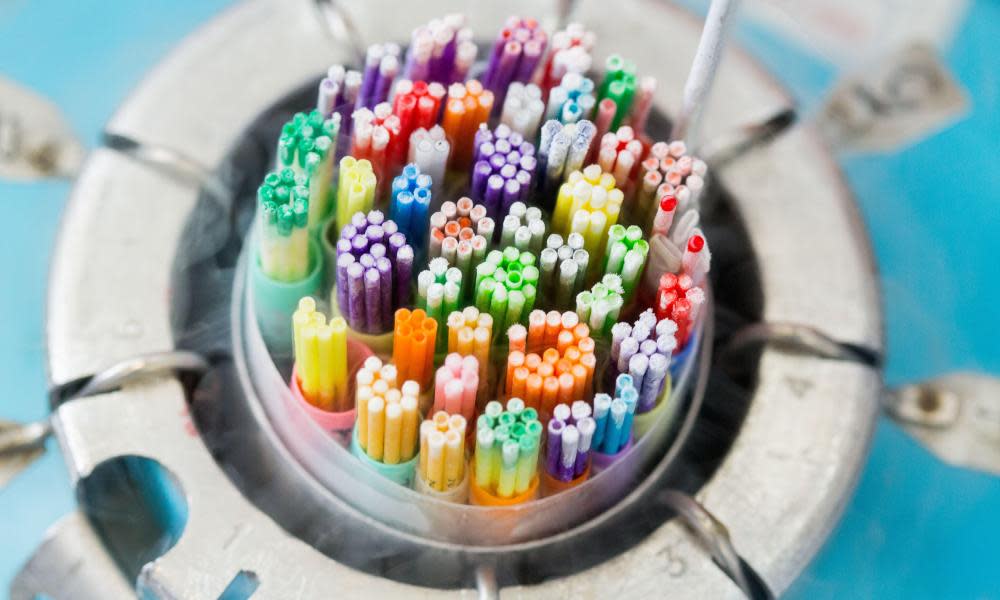New UK measures on freezing eggs leave women in the cold

This morning, for the second time this week, I heard the phrase “drops off a cliff” during a discussion about fertility. The second time this week. Through my life, of course, I’ve heard it plenty, spiking sharply in my 30s. A phrase that, as far as I’m aware, is only ever used when trying to scare a woman who has had the audacity to arrive at 35 without at least one child hanging from her nipple, only ever used to describe the rocky internal geography of a woman’s body, scattered with gravel, echoing with screams.
This cliff does not exist. The area in question suffers from dramatic TripAdvisor reviews, people who were promised perhaps sandy beaches and a lovely picnic-spot, but instead found themselves having to walk a little way in quite the wrong shoes. “One star,” types Lorraine from Watford. ‘Treacherous cliff, mediocre café at the top, quiche was too salty and such a small slice, too.” From certain angles in bad weather, yes, the drop looks steep, with eggs crashing madly against the rocks. But in daylight, it is really more of a gentle hill. The stat suggesting it becomes basically impossible for a woman to conceive after 35 originated from data collected more than 300 years ago. Recent research is more reassuring, showing that while there are definitely changes that happen to our bodies which affect our ability to have children, 78% of women aged 35-40 conceive within a year. Age has an impact, but every woman’s fertility is different at the same age.
I see a ticking clock dropping off a pink cliff, its alarm ringing manically
Forgive me for going on about it (and with numbers, too, how rude), but the fabled cliff is on my mind this week as the government has announced that women are now allowed to freeze their eggs for up to 55 years. Health secretary Sajid Javid said allowing a 25-year-old to keep her eggs on ice until she is 70, “would remove the pressure of the ticking clock in the back of people’s minds”. These will be the images that will flash before me as I lie dying, a ticking clock dropping off a pink cliff, its alarm ringing manically. But, with all respect to the lovely science, which offers solutions for those having treatments that compromise their fertility, this latest adjustment (proposed so that parents of newborn girls with a genetic condition causing premature menopause could store their eggs) does less than nothing to help most people who want babies.
Not only is the egg-freezing process unreachably expensive for all but a tiny proportion of women, with the most optimistic data suggesting the birthrate for women using their own frozen eggs is only around 18% (the majority, in fact, will never defrost them at all), but the obstacle preventing women having kids before they’re 35 has never been the length of time they’re allowed to store their eggs.
In fact, fertility pioneer Dr Gill Lockwood said keeping “potential children” in the freezer can “extract a psychologically heavy toll” on those who have frozen their eggs, with couples who have had children, “tormented by the presence of potential siblings in the cryostore. Many have said that they welcome the current 10-year limit, because it then is not ‘their’ responsibility if the embryos are discarded.” This is an unpredictable and sticky subject, littered with anxiety and hormones and residual fear. The real reasons people don’t have children vary from the intimate to the structural, and they sit inside each other like Russian dolls.
Our parents’ generation had settled into a carpeted house by the age of 35
Quite apart from the state of swipable dating where commitment is liquid, and the problem that the heavy facts of fertility itself are laid solely upon a woman’s shoulders – a conversation to be broached with partners carefully, in dim light – there are large and crushing truths about the architecture of our lives that mean starting a family is impossible for many. Our parents’ generation may have been settled in a carpeted house by 35, jobbed for life, but that age looks very different today. Simply keeping yourself healthy and warm at a time of rising house prices and stagnant wages is tricky, before even attempting to create a home for a child, while those in a position to buy a place need to be in a couple to even consider a mortgage. To be a single parent by choice requires lots of cash and even more support. Even if a woman wants to freeze her eggs and begin that often lonely (and sometimes painful) journey, the costs (around £4,000 for a single cycle, with annual storage fees starting at £200) rule it out for most. Rent is crippling, the UK has the second most expensive childcare in the world and corporate culture remains hourful and rigid, stubbornly refusing to accommodate parents’ jumbled lives.
Javid presents this news to women as if a rare and precious gift, but mate, the box is empty. With a powerpoint presentation promoting the commodification of fertility with clocks and cliffs, he is helping sell women an illusion. And the rub is that, as a politician, there is much he could do to help people have babies safely, not least by making their economic lives even a single inch easier, but extending freezing times will help only a handful of the very wealthiest, and then, only maybe. Whether in 10 years or 100, for the majority of people in these frozen times, those freezing times make little impact.
Email Eva at e.wiseman@observer.co.uk or follow her on Twitter @EvaWiseman

 Yahoo Movies
Yahoo Movies 
